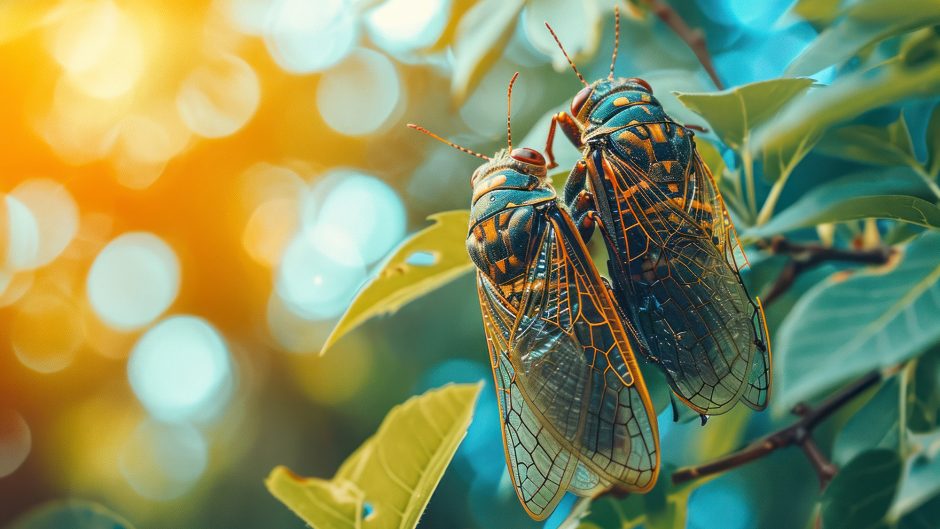
Feb. 16, 2024
This spring, billions of cicada beetles will chorus together as two broods emerge from their years-long slumber. With the longest lifespan of any insect, periodical cicadas are native to Missouri. The broods — groups of cicadas that share the same emergence years — will appear in 18 Midwestern states in late April and early May. This year, Brood XIII, which comes out every 17 years, and Brood XIX, which comes out every 13 years, will join together in the magical display of emerging together this spring right in our backyards.
The last time this historic event took place was when Thomas Jefferson was president, decades before Missouri statehood. The next overlapping event will be in the year 2245 — something that only our grandchildren’s great-great-great grandchildren will be able to experience.
People in northeastern Missouri near the Illinois border could experience both broods as they emerge in a couple of weeks’ time. The loud sound you hear is from male cicadas as they send out their mating call, said University of Missouri Extension horticulture specialist Tamra Reall. The synchronized male singing can be louder than a jet engine.
Cicadas, while loud and messy, are harmless to humans and their pets, Reall said. They don’t sting or bite. She warns against using pesticides that will harm birds and insects, such as butterflies, bees and moths. If there is concern about new trees or bushes, protect them with a loose cover of cheesecloth.
Read more from MU Extension


